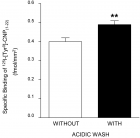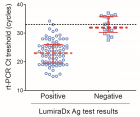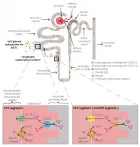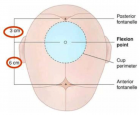Abstract
Review Article
Biologic therapy in severe asthma: An update
Maha A Al Ammari*
Published: 28 August, 2019 | Volume 3 - Issue 1 | Pages: 003-009
Asthma is a chronic inflammatory disease of the airways characterized by airway inflammation, bronchial hyperresponsiveness, reversible airflow obstruction and recurrent symptoms. Patients often present with coughing, wheezing, dyspnea, and chest tightness, were they usually responds to the mainstay of treatment that relies on inhaled glucocorticoids (ICS), and long acting β2 agonist (LABA), along with leukotriene. In around 20% of the patient’s morbidity, mortality and cost of therapy increased because they fail to benefit from the existing gold standard therapy regimen. Both immunoglobulin-E (IgE), interlukin-5 (IL-5) had proven to play important major role in asthma pathogenesis. Over the past two decades biologic therapy that targeting IgE begins the era in treating severe asthma, and recently anti-IL-5, revealed major role in eosinophils maturation, activation, survival, and recruitment process of severe asthma. The different biologic therapy that is currently available in the market are supported by solid evidence from controlled randomized clinical trials, to guide the clinician on the type of patients that will benefit from the therapy, with an insight on the appropriate monitoring parameters and patient evaluation plans. This review was conducted by searching PubMed, EMBASE, and Google Scholar to identify peer-reviewed clinical trials, guidelines, and review articles published in English in the role of biologic therapy in severe asthma. The main aim from publishing this review is to summarize the current available evidence on the approved biologic therapy in treating patients with severe asthma.
Read Full Article HTML DOI: 10.29328/journal.aaai.1001016 Cite this Article Read Full Article PDF
Keywords:
Biologic therapy; Severe asthma; Omalizumab; Mepolizumab; Benralizumab; Reslizumab
References
- Asthma GI. Global Strategy for Asthma Management and Prevention: GINA; 2018.
- Al-Moamary MS, Alhaider SA, Alangari AA, Al Ghobain MO, Zeitouni MO, et al. The Saudi Initiative for Asthma-2019 Update: Guidelines for the diagnosis and management of asthma in adults and children. Ann Thorac Med. 2019; 14: 3-48. PubMed: https://www.ncbi.nlm.nih.gov/pubmed/30745934
- McCracken J, Veeranki SP, Ameredes BT, Calhoun WJ. Diagnosis and Management of Asthma in Adults: A Review. JAMA. 2017; 318: 279-290. PubMed: https://www.ncbi.nlm.nih.gov/pubmed/28719697
- McCracken J, Tripple JW, Calhoun WJ. Biologic Therapy in the Management of Asthma. Curr Opin Allergy Clin Immunol. 2016; 16: 375–382. PubMed: https://www.ncbi.nlm.nih.gov/pubmed/27362324
- Al Ghobain MO, Algazlan SS, Oreibi TM. Asthma prevalence among adults in Saudi Arabia. Saudi Med J. 2018; 39: 179-184. PubMed: https://www.ncbi.nlm.nih.gov/pubmed/29436567
- Stephen T Holgate, Riccardo Polosa. The mechanisms, diagnosis, and management of severe asthma in adults. Lancet. 2006; 368: 780-793. PubMed: https://www.ncbi.nlm.nih.gov/pubmed/16935689
- Canonica GW, Senna G, Mitchell PD, O'Byrne PM, Passalacqua G, et al. Therapeutic interventions in severe asthma. World Allergy Organ J. 2016; 9: 1-12. PubMed: https://www.ncbi.nlm.nih.gov/pubmed/27942351
- Yang X, Feng HR, Chen ZM, Ying SM. Biologic Targeting: New and Effective Therapeutic Approaches against Severe Asthma. Chin Med J. 2018; 31: 1009-1012. PubMed: https://www.ncbi.nlm.nih.gov/pmc/articles/PMC5937305/
- Diver S, Russell RJ, Brightling CE. New and emerging drug treatments for severe asthma. Clin Exp Allergy. 2018; 48: 241–252. PubMed: https://www.ncbi.nlm.nih.gov/pubmed/29315966
- Linda Zhu, Ciaccio CE, Casale TB. Potential new targets for drug development in severe asthma. World Allergy Organ J. 2018; 11: 1-9. PubMed: https://www.ncbi.nlm.nih.gov/pubmed/30386455
- Patel TR, Sanjiv Sur. Ige and eosinophils as therapeutic targets in asthma. Curr Opin Allergy Clin Immunol. 2017; 17: 42-49. PubMed: https://www.ncbi.nlm.nih.gov/pubmed/27906698
- Hanania NA, Alpan O, Hamilos DL, Condemi JJ, Reyes-Rivera I, et al. Omalizumab in Severe Allergic Asthma Inadequately Controlled with Standard Therapy. Ann Intern Med. 2011; 154: 573-582. PubMed: https://www.ncbi.nlm.nih.gov/pubmed/21536936
- Humbert M, Beasley R, Ayres J, Slavin R, Hébert J, et al. Benefits of omalizumab as add-on therapy in patients with severe persistent asthma who are inadequately controlled despite best available therapy (GINA 2002 step 4 treatment): INNOVATE. Allergy. 2005; 60: 309-316. PubMed: https://www.ncbi.nlm.nih.gov/pubmed/15679715
- Braunstahl GJ, Chen CW, Maykut R, Georgiou P, Peachey G, et al. The eXpeRience registry: The ‘real-world ‘effectiveness of omalizumab in allergic asthma. Respir Med. 2013; 107: 1141-1151. PubMed: https://www.ncbi.nlm.nih.gov/pubmed/23721684
- Iribarren C, Rahmaoui A, Long AA, Szefler SJ, Bradley MS, et al. Cardiovascular and cerebrovascular events among patients receiving omalizumab: Results from EXCELS, a prospective cohort study in moderate to severe asthma. J Allergy Clin Immunol. 2017; 139: 1489-1495. PubMed: https://www.ncbi.nlm.nih.gov/pubmed/27639934
- Caruso M, Morjaria J, Emma R, Amaradio MD, Polosa R. Biologic agents for severe asthma patients: clinical perspectives and implications. Intern Emerg Med. 2018; 13: 155–176. PubMed: https://www.ncbi.nlm.nih.gov/pubmed/29238905
- Menzella F, Lusuardi M, Montanari G, Galeone C, Facciolongo N, et al. Clinical usefulness of mepolizumab in severe eosinophilic asthma. Ther Clin Risk Manag. 2016; 12: 907–916. PubMed: https://www.ncbi.nlm.nih.gov/pubmed/27354806
- Pavord ID, Korn S, Howarth P, Bleecker ER, Buhl R, et al. Mepolizumab for severe eosinophilic asthma (DREAM): a multicenter, double-blind, placebo-controlled trial. Lancet. 2012; 380: 651-659. PubMed: https://www.ncbi.nlm.nih.gov/pubmed/22901886
- Ortega HG, Liu MC, Pavord ID, Brusselle GG, FitzGerald JM, et al. Mepolizumab Treatment in Patients with Severe Eosinophilic Asthma. N Engl J Med. 2014; 371: 1198-1207. PubMed: https://www.ncbi.nlm.nih.gov/pubmed/25199059
- Elisabeth HB, Wenzel SE, Thompson PJ, Prazma CM, Keene ON, et al. Oral Glucocorticoid-Sparing Effect of Mepolizumab in Eosinophilic Asthma. N Engl J Med. 2014; 371: 1189-1197. PubMed: https://www.ncbi.nlm.nih.gov/pubmed/25199060
- Chupp GL, Bradford ES, Albers FC, Bratton DJ, Wang-Jairaj J, et al. Efficacy of mepolizumab add-on therapy on health-related quality of life and markers of asthma control in severe eosinophilic asthma (MUSCA): a randomised, double-blind, placebo-controlled, parallel-group, multicentre, phase 3b trial. Lancet. 2017; 5: 390-400. PubMed: https://www.ncbi.nlm.nih.gov/pubmed/28395936
- Lugogo N, Domingo C, Chanez P, Leigh R, Gilson MJ, et al. Long-term efficacy and safety of Mepolizumab in patients with severe eosinophilic Asthma: A Multi-center, Open-label, Phase IIIb Study. Clin Ther. 2016; 38: 2058-2069. PubMed: https://www.ncbi.nlm.nih.gov/pubmed/27553751
- Khatri S, Moore W, Gibson PG, Leigh R, Bourdin A, et al. Assessment of the long-term safety of mepolizumab and durability of clinical response in patients with severe eosinophilic asthma. J Allergy Clin Immunol. 2019; 143: 1742-1751. PubMed: https://www.ncbi.nlm.nih.gov/pubmed/30359681
- Emma R, Morjaria JB, Fuochi V, Polosa R, Caruso M. Mepolizumab in the management of severe eosinophilic asthma in adults: current evidence and practical experience. Ther Adv Respir Dis. 2018; 12: 1–12. PubMed: https://www.ncbi.nlm.nih.gov/pubmed/30354852
- Galo AP, Labor M, Tiotiu A, Baiardini I, Scichilone N, et al. Impact of reslizumab on outcomes of severe asthmatic patients: current perspectives. Patient Relat Outcome Meas. 2018; 9: 267–273. PubMed: https://www.ncbi.nlm.nih.gov/pmc/articles/PMC6103306/
- Castro M, Mathur S, Hargreave F, Boulet LP, Xie F, et al. Reslizumab for poorly controlled eosinophilic asthma: a randomized, placebo-controlled study. Am J Respir Crit Care Med 2011; 184: 1125–1132. PubMed: https://www.ncbi.nlm.nih.gov/pubmed/21852542
- Castro M, Zangrilli J, Wechsler ME, Bateman ED, Brusselle GG, et al. Reslizumab for inadequately controlled asthma with elevated blood eosinophil counts: results from two multicentre, parallel, double-blind, randomised, placebo-controlled, phase 3 trials. Lancet Respir Med. 2015; 3: 355–366. PubMed: https://www.ncbi.nlm.nih.gov/pubmed/25736990
- Corren J, Weinstein S, Janka L, Zangrilli J, Garin M. Phase 3 study of randomized in patients with poorly controlled asthma: effect across a board range of eosinophil counts. Chest. 2016; 150: 799-810. PubMed: https://www.ncbi.nlm.nih.gov/pubmed/27018175
- Bjermer L, Lemiere C, Maspero J, Weiss S, Zangrilli J, et al. Reslizumab for inadequately controlled asthma with elevated blood eosinophil levels: a randomized phase 3 study. Chest. 2016; 150: 789-798. PubMed: https://www.ncbi.nlm.nih.gov/pubmed/27056586
- Brusselle G, Canvin J, Weiss S, Sun SX, Buhl R. Stratification of eosinophilic asthma patients treated with reslizumab and GINA Step 4 or 5 therapy. ERJ Open Res. 2017; 3: 1-9. PubMed: https://www.ncbi.nlm.nih.gov/pubmed/28845430
- Pelaia C, Vatrella A, Bruni A, Terracciano R, Pelaia G. Benralizumab in the treatment of severe asthma: design, development and potential place in therapy. Drug Des Devel Ther. 2018; 12: 619–628. PubMed: https://www.ncbi.nlm.nih.gov/pubmed/29606855
- Pelaia C, Calabrese C, Vatrella A, Busceti MT, Garofalo E, et al. Benralizumab: From the Basic Mechanism of Action to the Potential Use in the Biological Therapy of Severe Eosinophilic Asthma. Biomed Res Int. 2018; 2018: 1-9. PubMed: https://www.ncbi.nlm.nih.gov/pubmed/29862274
- Menzella F, Lusuardi M, Galeone C, Facciolongo N, Zucchi L. The clinical profile of benralizumab in the management of severe eosinophilic asthma. Ther Adv Respir Dis. 2016; 10: 534–548. PubMed: https://www.ncbi.nlm.nih.gov/pubmed/27612492
- Bleecker ER, FitzGerald JM, Chanez P, Papi A, Weinstein SF, et al. Efficacy and safety of benralizumab for patients with severe asthma uncontrolled with high-dosage inhaled corticosteroids and long-acting β2-agonists (SIROCCO): a randomised, multicentre, placebo-controlled phase 3 trial. Lancet. 2016; 388: 2115–2127. PubMed: https://www.ncbi.nlm.nih.gov/pubmed/27609408
- FitzGerald JM, Bleecker ER, Nair P, Korn S, Ohta K, et al. Benralizumab, an anti-interleukin-5 receptor α monoclonal antibody, as add-on treatment for patients with severe, uncontrolled, eosinophilic asthma (CALIMA): a randomised, double-blind, placebo-controlled phase 3 trial. Lancet. 2016; 388: 2128–2141. PubMed: https://www.ncbi.nlm.nih.gov/pubmed/27609406
- Nair N. Oral Glucocorticoid–Sparing Effect of Benralizumab in Severe Asthma. N Engl J Med. 2017; 376: 2448-2458.
- Ferguson GT, FitzGerald JM, Bleecker ER, Laviolette M, Bernstein D, et al. Benralizumab for patients with mild to moderate, persistent asthma (BISE): a randomised, double-blind, placebo-controlled, phase 3 trial. Lancet Respir Med. 2017; 5: 568–576. PubMed: https://www.ncbi.nlm.nih.gov/pubmed/28545978
- Busse WW, Bleecker ER, FitzGerald JM, Ferguson GT, Barker P, et al. Long-term safety and efficacy of benralizumab in patients with severe, uncontrolled asthma: 1-year results from BORA phase3 extension trial. Lancet. 2019; 7: 46-59. PubMed: https://www.ncbi.nlm.nih.gov/pubmed/30416083
- Bourdin A, Husereau D, Molinari N, Golam S, Siddiqui MK, et al. Matching-adjusted indirect comparison of benralizumab versus interleukin-5 inhibitors for the treatment of severe asthma: a systematic review. Eur Respir J. 2018; 52: 1-13. PubMed: https://www.ncbi.nlm.nih.gov/pubmed/30309978
- Wenzel S, Ford L, Pearlman D, Spector S, Sher L, et al. Dupilumab in persistent asthma with elevated eosinophil levels. N Engl J Med. 2013; 368: 2455-2466. PubMed: https://www.ncbi.nlm.nih.gov/pubmed/23688323
- Wenzel S, Castro M, Corren J, Maspero J, Wang L, et al. Dupilumab efficacy and safety in adults with uncontrolled persistent asthma despite use of medium-to-high-dose inhaled corticosteroids plus a long-acting β2 agonist: a randomised double-blind placebo-controlled pivotal phase 2b dose-ranging trial. Lancet. 2016; 388: 31-44. PubMed: https://www.ncbi.nlm.nih.gov/pubmed/27130691
- Rabe KF, et al. Efficacy and Safety of Dupilumab in Glucocorticoid-Dependent Severe Asthma. N Engl J Med. 2018; 378: 2475-2485.
- Menzella F, Galeone C, Bertolini F, Castagnetti C, Facciolongo N. Innovative treatments for severe refractory asthma: how to choose the right option for the right patient? J Asthma Allergy. 2017; 10: 237–247. PubMed: https://www.ncbi.nlm.nih.gov/pubmed/28919788
- Pelaia G, Vatrella A, Busceti MT, Gallelli L, Preianò M, et al. Role of biologics in severe eosinophilic asthma focus on reslizumab. Ther Clin Risk Manag. 2016; 12: 1075–1082. PubMed: https://www.ncbi.nlm.nih.gov/pubmed/27445482
- Sahota J, Robinson DS. Update on new biologics for intractable eosinophilic asthma: impact of reslizumab. Drug Des Devel Ther. 2018; 12: 1173–1181. PubMed: https://www.ncbi.nlm.nih.gov/pubmed/29780238
Similar Articles
-
Inducible Laryngeal Obstruction/Vocal Cord Dysfunction and the Role It Plays in Refractory AsthmaJay I Peters*,Jorge Villalpando,Sandra G Adams. Inducible Laryngeal Obstruction/Vocal Cord Dysfunction and the Role It Plays in Refractory Asthma. . 2017 doi: 10.29328/journal.haard.1001005; 1: 036-039
-
Biologic therapy in severe asthma: An updateMaha A Al Ammari*. Biologic therapy in severe asthma: An update. . 2019 doi: 10.29328/journal.aaai.1001016; 3: 003-009
-
Immunological background for treatments with biologicals in CRSwNPL Klimek*,J Hagemann,I Casper,T Huppertz,A Bedbrook,J Bousquet. Immunological background for treatments with biologicals in CRSwNP. . 2021 doi: 10.29328/journal.aaai.1001026; 5: 022-029
Recently Viewed
-
Advancing Forensic Approaches to Human Trafficking: The Role of Dental IdentificationAiswarya GR*. Advancing Forensic Approaches to Human Trafficking: The Role of Dental Identification. J Forensic Sci Res. 2025: doi: 10.29328/journal.jfsr.1001076; 9: 025-028
-
Scientific Analysis of Eucharistic Miracles: Importance of a Standardization in EvaluationKelly Kearse*,Frank Ligaj. Scientific Analysis of Eucharistic Miracles: Importance of a Standardization in Evaluation. J Forensic Sci Res. 2024: doi: 10.29328/journal.jfsr.1001068; 8: 078-088
-
Sinonasal Myxoma Extending into the Orbit in a 4-Year Old: A Case PresentationJulian A Purrinos*, Ramzi Younis. Sinonasal Myxoma Extending into the Orbit in a 4-Year Old: A Case Presentation. Arch Case Rep. 2024: doi: 10.29328/journal.acr.1001099; 8: 075-077
-
Toxicity and Phytochemical Analysis of Five Medicinal PlantsJohnson-Ajinwo Okiemute Rosa*, Nyodee, Dummene Godwin. Toxicity and Phytochemical Analysis of Five Medicinal Plants. Arch Pharm Pharma Sci. 2024: doi: 10.29328/journal.apps.1001054; 8: 029-040
-
Antibacterial Screening of Lippia origanoides Essential Oil on Gram-negative BacteriaRodrigo Marcelino Zacarias de Andrade, Bernardina de Paixão Santos, Roberson Matteus Fernandes Silva, Mateus Gonçalves Silva*, Igor de Sousa Oliveira, Sávio Benvindo Ferreira, Rafaelle Cavalcante Lira. Antibacterial Screening of Lippia origanoides Essential Oil on Gram-negative Bacteria. Arch Pharm Pharma Sci. 2024: doi: 10.29328/journal.apps.1001053; 8: 024-028.
Most Viewed
-
Evaluation of Biostimulants Based on Recovered Protein Hydrolysates from Animal By-products as Plant Growth EnhancersH Pérez-Aguilar*, M Lacruz-Asaro, F Arán-Ais. Evaluation of Biostimulants Based on Recovered Protein Hydrolysates from Animal By-products as Plant Growth Enhancers. J Plant Sci Phytopathol. 2023 doi: 10.29328/journal.jpsp.1001104; 7: 042-047
-
Sinonasal Myxoma Extending into the Orbit in a 4-Year Old: A Case PresentationJulian A Purrinos*, Ramzi Younis. Sinonasal Myxoma Extending into the Orbit in a 4-Year Old: A Case Presentation. Arch Case Rep. 2024 doi: 10.29328/journal.acr.1001099; 8: 075-077
-
Feasibility study of magnetic sensing for detecting single-neuron action potentialsDenis Tonini,Kai Wu,Renata Saha,Jian-Ping Wang*. Feasibility study of magnetic sensing for detecting single-neuron action potentials. Ann Biomed Sci Eng. 2022 doi: 10.29328/journal.abse.1001018; 6: 019-029
-
Pediatric Dysgerminoma: Unveiling a Rare Ovarian TumorFaten Limaiem*, Khalil Saffar, Ahmed Halouani. Pediatric Dysgerminoma: Unveiling a Rare Ovarian Tumor. Arch Case Rep. 2024 doi: 10.29328/journal.acr.1001087; 8: 010-013
-
Physical activity can change the physiological and psychological circumstances during COVID-19 pandemic: A narrative reviewKhashayar Maroufi*. Physical activity can change the physiological and psychological circumstances during COVID-19 pandemic: A narrative review. J Sports Med Ther. 2021 doi: 10.29328/journal.jsmt.1001051; 6: 001-007

HSPI: We're glad you're here. Please click "create a new Query" if you are a new visitor to our website and need further information from us.
If you are already a member of our network and need to keep track of any developments regarding a question you have already submitted, click "take me to my Query."




















































































































































